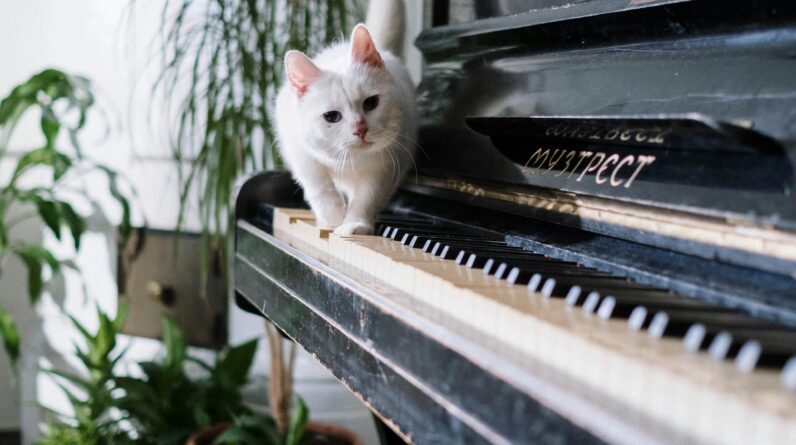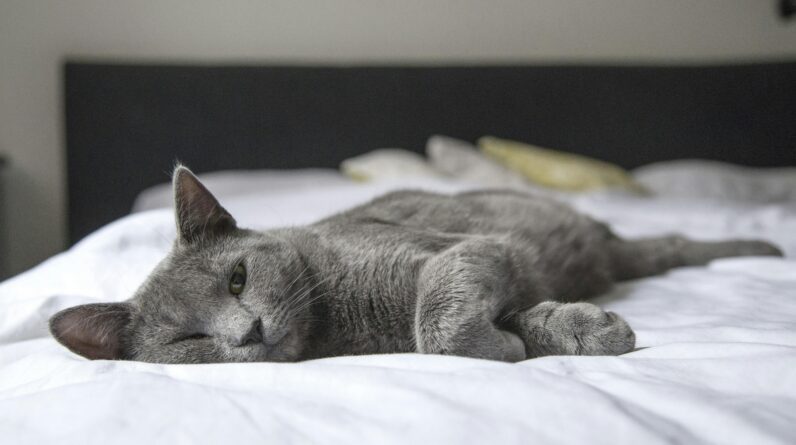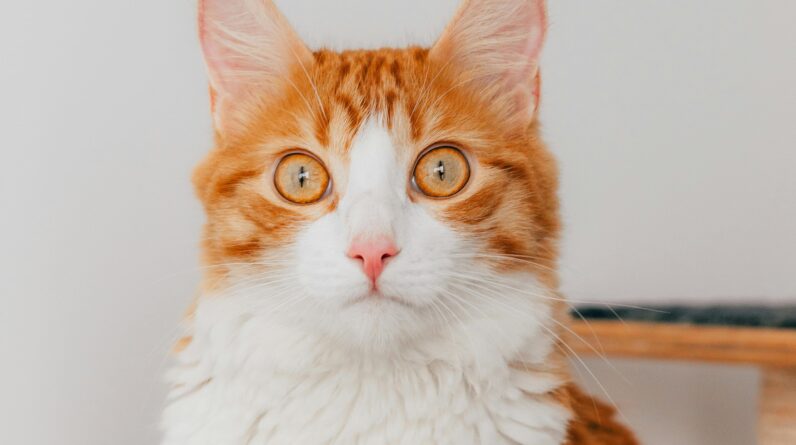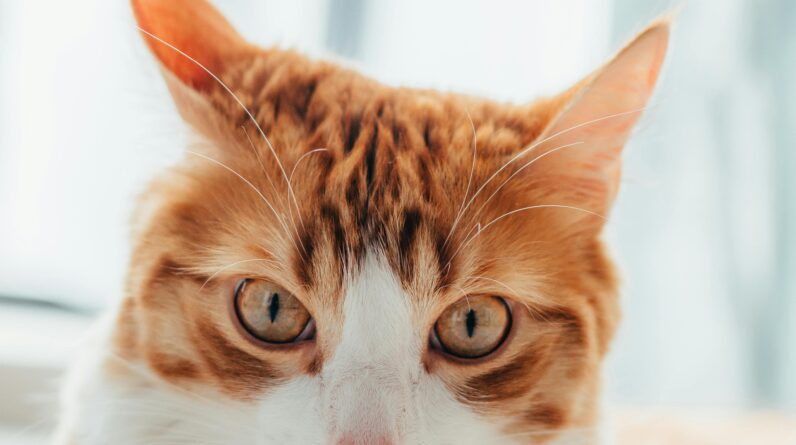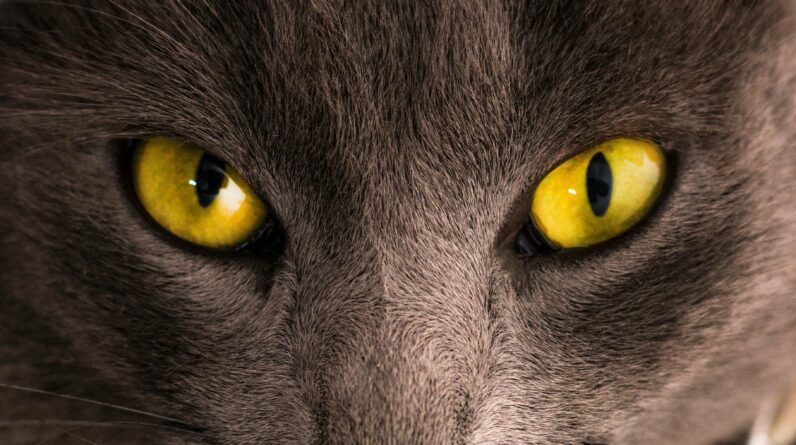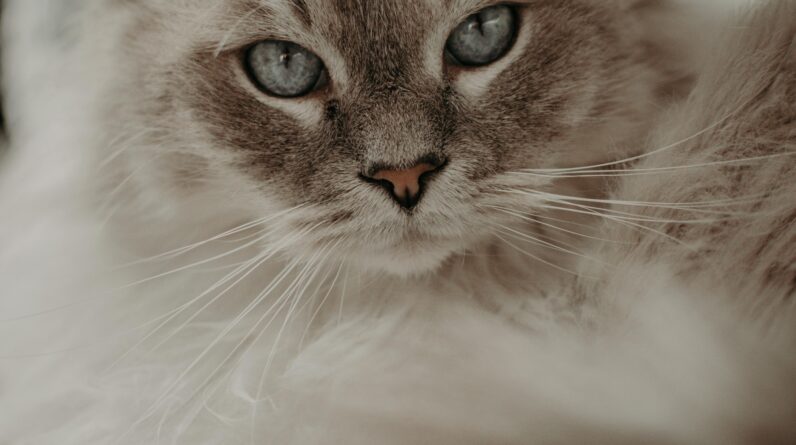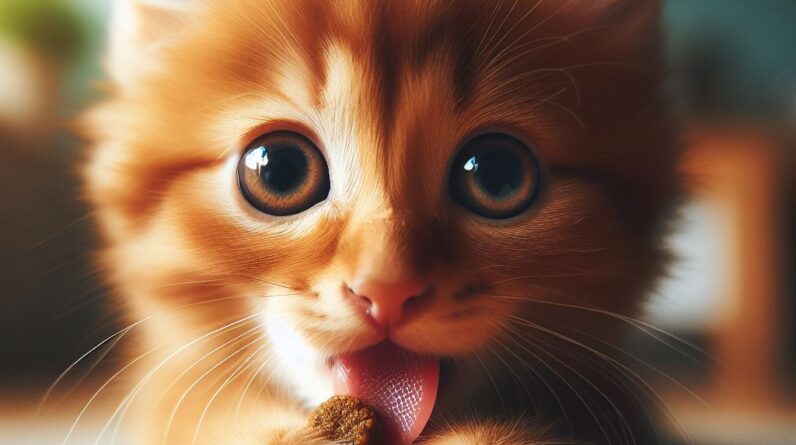
The Best Food Choices for Your Ginger Kitten: A Guide to Optimal Nutrition
Welcoming a ginger kitten into your home brings joy and the responsibility of providing the best nutrition for their growth and health.
Understanding the specific dietary needs of ginger kittens is crucial in ensuring they develop into healthy, vibrant cats.
This article aims to guide you through the best food options for your ginger kitten, highlighting their benefits and how they cater to your kitten’s unique needs.
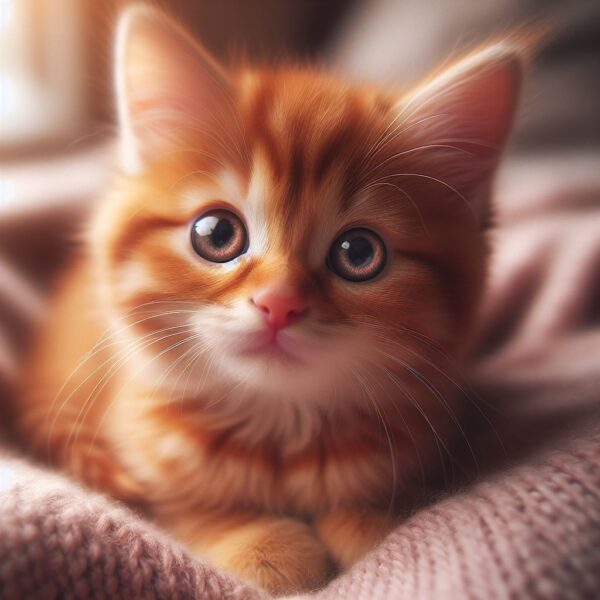

Key Takeaways: Nutrition for Ginger Kittens
Balanced Diet: Essential for growth and health.
Dry vs. Wet Food: Combine both for balance.
Kitten Formulas: Choose high-protein, nutrient-rich options.
Homemade Diet: Vet-approved and balanced.
Gradual Transition: Introduce new foods slowly.
Vet Consultations: Regular check-ups for dietary adjustments.
Understanding Ginger Kitten Nutrition Needs
Ginger kittens need a lot of protein.
It helps them grow strong muscles. Look for foods high in protein.
Fats are also important.
They give kittens energy to play and explore. Choose foods with healthy fats.
Vitamins and minerals are key.
They keep kittens healthy in many ways.
They help with good vision and strong bones. They also keep their immune system working well.
It’s vital to find the right balance.
Kitten food should have a mix of these nutrients. This balance supports their growth and development.
When picking food, check the labels. Make sure protein, fats, vitamins, and minerals are listed.
This ensures your kitten gets what it needs to thrive.
Ginger Kittens Specific Needs
Ginger kittens, like all kittens, have specific dietary needs essential for their growth and health.
However, it’s important to note that the dietary needs of kittens are generally more related to their age and overall health rather than their coat color, including ginger kittens.
Here’s a breakdown of what to consider for their diet, keeping in mind any unique characteristics they might have.
General Nutritional Needs
All kittens require a diet high in protein for muscle development, fats for energy, and the right balance of vitamins and minerals for overall health.
This includes calcium for bone growth and taurine for heart and eye health.
Ginger Coat Color and Health
While the ginger coat color in cats is not linked to specific dietary needs, it’s always important to monitor any individual health issues or sensitivities.
For example, if your ginger kitten has a sensitive stomach, you might need to choose foods that are easier to digest.
Allergies and Sensitivities
Some kittens can develop allergies or sensitivities to certain types of food.
Watch for signs of allergies like itching or digestive upset, and consult with your veterinarian if you suspect your kitten has a food allergy.
Weight Management
Monitor your ginger kitten’s weight and adjust their diet as necessary.
Overfeeding can lead to obesity, which can cause health problems later in life.
Hydration
Ensure your kitten stays hydrated, especially if they primarily eat dry food.
Ginger kittens, like all cats, may not have a strong drive to drink water, so wet food can help supplement their hydration needs.
Life Stage Consideration
Kitten food is formulated to support rapid growth and development.
As your ginger kitten grows, their dietary needs will change, and you’ll need to transition them to adult cat food at the appropriate age.
While ginger kittens don’t have specific dietary needs solely based on their coat color, it’s essential to provide a well-balanced diet suitable for any kitten, paying attention to their individual health
and nutritional requirements.
Regular vet check-ups are crucial to ensure they are developing healthily and to address any specific dietary needs they may have.
Dry Food vs. Wet Food: What’s Best for Your Kitten?
Kittens have two main food options: dry kibble and wet food.
Dry Kibble
Dry kibble is easy to use. It’s convenient for busy pet owners.
It’s good for your kitten’s teeth. Chewing kibble helps keep their teeth clean.
But, make sure it’s for kittens. Kitten kibble has special nutrients they need.
Wet Food
Wet food has more water. It helps keep kittens hydrated.
It’s usually tastier for kittens. They often prefer its texture and flavor.
Wet food can be more digestible. It’s often easier on their little stomachs.
Combining Dry and Wet Food
Some experts say mix both types. This gives kittens variety.
It balances their diet. They get benefits from both dry and wet food.
Mixing can make meals more exciting. Kittens enjoy different tastes and textures.
Remember, whether dry or wet, choose food made for kittens.
Their growing bodies have unique needs. A mix of both can provide a well-rounded diet.
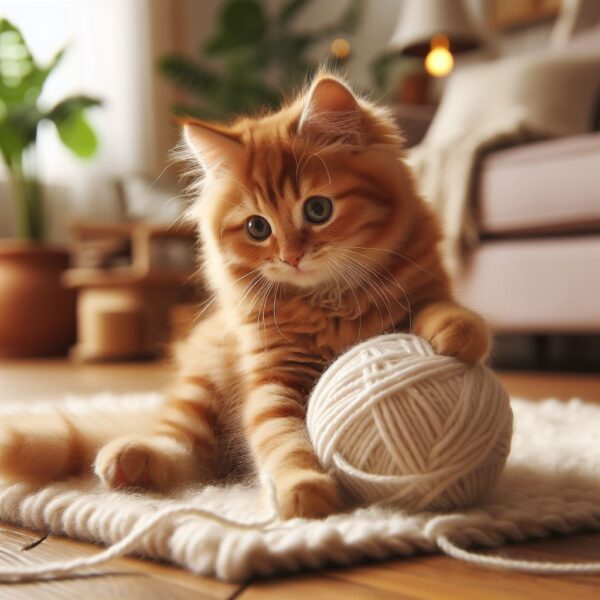

Specialized Kitten Formulas
Lots of brands make special kitten food. It’s made just for their growth and health needs.
Why Kitten Formulas?
They have more protein. Kittens need this for fast growth.
These foods are rich in essential nutrients. They help kittens develop well.
Higher Nutrient Levels
Kitten food has more of what they need than adult cat food.
It includes things like amino acids and vitamins. These are key for healthy development.
Popular Brands
Brands like Royal Canin focus on kitten health.
Hill’s Science Diet offers scientifically-formulated kitten food.
Purina Pro Plan provides varied options for different kitten needs.
Benefits of These Brands
They research what kittens need most. This means their food is really good for growth.
They offer a range of choices. You can find the perfect fit for your kitten’s needs.
Kitten-specific formulas are important.
They make sure your kitten gets the right start in life.
Look for these kinds of foods to support their growth and health.
Homemade and Natural Foods
Some people like making kitten food at home. It can be more natural.
Consult a Vet First:
Always talk to a vet before trying homemade diets.
They make sure the diet is balanced. Kittens need specific nutrients.
Healthy Homemade Choices
Cooked lean meats are great. They give kittens protein.
Add veggies like carrots. They provide vitamins.
Pumpkin is another good option. It’s healthy and kittens often like it.
Avoid Harmful Foods
Never give kittens onions or garlic. These are toxic to them.
Chocolates are a big no. They can make kittens very sick.
Stick to safe, cat-friendly ingredients.
Balance is Key
Homemade diets should be well-rounded.
They need the right mix of protein, veggies, and vitamins.
Your vet can help plan a good homemade menu.
Homemade diets can be healthy for kittens.
But, it’s important to get it right.
Your vet can guide you to make sure your kitten gets what it needs.
Avoid unsafe foods and focus on nutritious, kitten-friendly options.
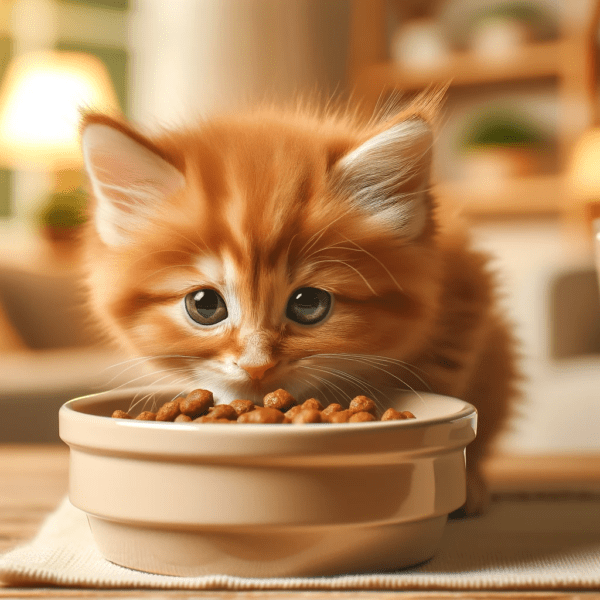

Transitioning Foods and Feeding Schedules
Changing a kitten’s food needs care. Do it slowly to keep their stomachs happy.
Start Slow
Mix a little new food with their usual food.
Just a small amount at first.
Gradual Increase
Each day, add a bit more new food.
Do this over a week. It helps them adjust.
Meal Frequency
Kittens usually eat 3 to 4 times a day.
This keeps their energy up throughout the day.
Adjust as They Grow
As kittens get bigger, their eating needs change.
You might feed them less often, but with more food each time.
Follow Vet Advice
Your vet can give the best feeding advice.
They know what’s right for your kitten’s age and health.
Remember, changing food too fast can upset a kitten’s tummy.
Take it slow. Watch how they react to the new food.
And always keep your vet in the loop.
They can guide you to make sure your kitten grows up healthy and strong.
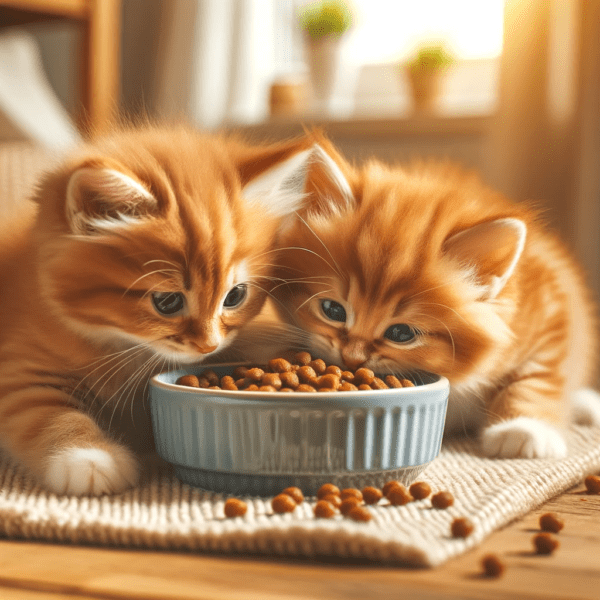

Choosing the right food for your ginger kitten is pivotal in ensuring they grow up healthy and strong.
Whether you opt for commercial kitten food, a combination of dry and wet food, or a homemade diet, always prioritize high-quality ingredients and balanced nutrition.
Remember, your kitten’s dietary needs will change as they grow, so regular consultations with your vet are essential to adjust their diet accordingly.
With the right nutrition, your ginger kitten will thrive and bring joy to your life for years to come.
Note: Always consult with a veterinarian before making any significant changes to your kitten’s diet to ensure their specific health needs are being met.
FAQs:
- What nutrients are essential for a ginger kitten’s diet?
Protein, fats, vitamins, and minerals are crucial. Protein supports muscle growth, fats provide energy, and vitamins and minerals aid in overall health, including vision, bone growth, and immune function. Should I feed my ginger kitten dry or wet food?
Both are beneficial. Dry food is good for dental health and convenient, while wet food helps with hydration and is often more palatable. A combination of both can provide a balanced diet.
Are there specific brands that are best for ginger kittens?
Brands like Royal Canin, Hill’s Science Diet, and Purina Pro Plan offer high-quality kitten-specific formulas. These are designed to meet the higher protein and nutrient needs of growing kittens.
Can I prepare homemade food for my kitten?
Yes, but it’s important to consult with a veterinarian to ensure it’s nutritionally balanced. Safe options include cooked lean meats, carrots, and pumpkin. Avoid toxic foods like onions, garlic, and chocolate.
How do I introduce new foods to my kitten?
Gradually. Start by mixing a small amount of the new food with their current food and increase it over a week. This helps avoid digestive upset.
How often should I feed my ginger kitten?
Kittens typically eat three to four meals a day. As they grow, consult with your vet to adjust their feeding schedule based on their specific needs.
What foods should I avoid giving my ginger kitten?
Avoid onions, garlic, chocolate, and any other foods known to be toxic to cats. Also, steer clear of foods high in artificial additives or low-quality ingredients.
Can I feed adult cat food to my kitten?
It’s not recommended. Kitten food is specially formulated to support rapid growth and development, containing higher levels of essential nutrients compared to adult cat food.
How do I know if my kitten’s diet is well-balanced?
Regular check-ups with a veterinarian can help ensure your kitten’s dietary needs are being met and make any necessary adjustments.
Is it okay to give my kitten treats?
Yes, in moderation. Treats should not make up more than 10% of your kitten’s daily caloric intake. Choose high-quality treats appropriate for kittens.


